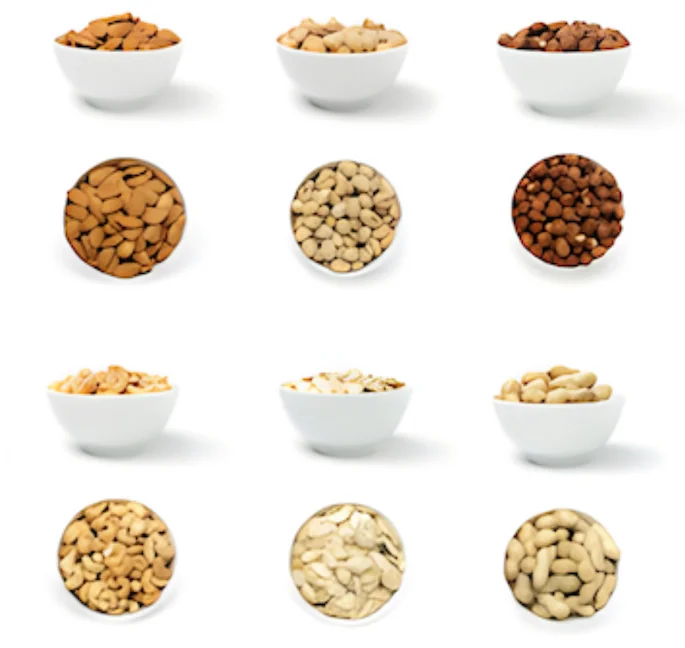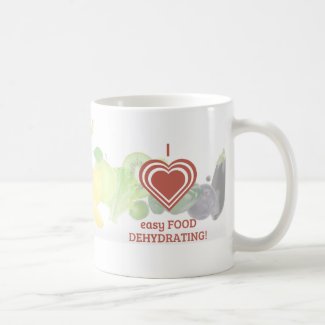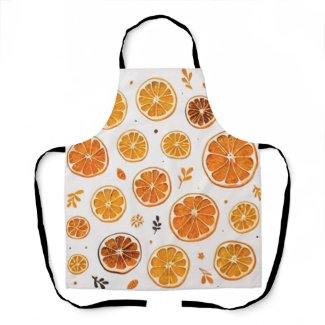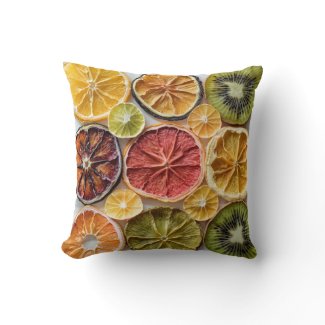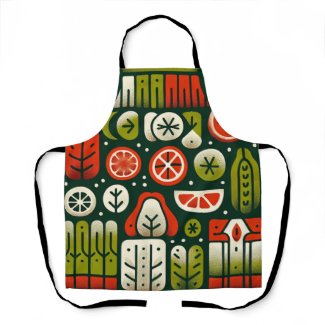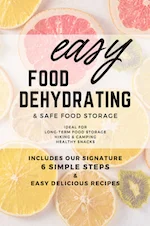- Home
- Articles On How To Dehydrate Food Safely
- Why Dehydrate Food? 7 Important Reasons to Try Food Dehydration
Why Dehydrate Food?
7 Important Reasons to Try Food Dehydration

Susan Gast | Author and blogger at Bored Boomers, Beesville Books, A New Sober You and Easy Food Dehydrating
Welcome to "Why dehydrate food?" and it's a good question. If you're considering this food-preservation method, discover 7 reasons why you should start today!
 Courtesy of Camtasia - Registered User
Courtesy of Camtasia - Registered UserDid you know that drying food is one of the oldest tricks in the book for keeping it fresh? It's super simple - just remove the moisture, and you've got food that lasts way longer!
Whether you're growing too many tomatoes in your backyard, looking to save some cash at the grocery store, or just want to be prepared for whatever life throws your way, food dehydration might be your new best friend.
Let's get going with seven reasons why you might want to give it a try!
1. All-Natural Preservation (No Weird Chemicals!)
Worried about all those unpronounceable ingredients on food labels these days? Dehydration is about as natural as it gets! When you remove 80-95% of the water from foods, you're basically creating a no-entry zone for bacteria and mold. They need moisture to grow, and without it, they simply can't survive.
The best part? Your strawberry is still just a strawberry - minus the water! Your basil still has all those amazing essential oils and flavors without needing any chemical preservatives. It's just pure food, the way nature intended.
Properly dried apples and bananas can stay good for 5+ years! Veggies typically last about 8-10 months. All without a single chemical additive - just the natural goodness of the food itself, preserved by simply removing moisture.
2. Say Goodbye to Food Waste!
Ever feel guilty throwing away food? You're not alone! In America, we toss about 60 million tons of food each year - that's like throwing away 40 percent of the entire US food supply according to RTS.com's findings! Dehydration offers a super practical solution to this problem.
Picture this: you find an amazing deal on berries at the farmers market and buy a bunch. Two days later, some are already starting to get moldy. Instead of pitching them, you could dehydrate them and enjoy them for months! Or maybe your garden suddenly gives you 20 zucchinis at once (we've all been there!). By dehydrating the extras, you're saving all that goodness before it has a chance to go bad.
Even those slightly soft strawberries, wilting spinach leaves, or super-ripe bananas that you'd normally toss can be transformed into nutritious ingredients for future meals.
3. Your Wallet Will Thank You
Who doesn't love saving money? Dehydration lets you take advantage of sales and seasonal abundance in so many ways.
When local farms are practically giving away strawberries in June, you can stock up and preserve that economic win all year round. If you're a gardener, the savings are even bigger. That tomato plant that cost you a few dollars but produced 20 pounds of fruit becomes an amazing investment when you can use and preserve every single tomato!
Here's a fun comparison: $2 worth of fresh apples can be turned into dried apple rings that would cost $8-10 in the store. Making your own beef jerky from sale-priced meat saves even more compared to those fancy $25-30 per pound packages at the checkout!
A family that regularly dehydrates seasonal produce, takes advantage of meat sales, and preserves garden harvests could easily save $500-1,000 every year - while eating higher quality food than the store-bought preserved stuff.
4. It's Like Magic for Saving Space!
Dehydration does something amazing to food - it shrinks it! Most foods reduce to about one-third of their original size and weight when properly dried. This is super helpful in so many situations.
If you like hiking or camping, you know that every ounce matters in your backpack. A week's worth of dehydrated meals might weigh less than 5 pounds, compared to 15-20 pounds for regular food. Space-wise, a month's emergency food supply can fit in a small box instead of taking up a whole cabinet!
Home storage becomes way easier too. A bushel of apples that would overflow your refrigerator drawer can fit in a single quart Mason jar when dried. This is perfect if you live in a smaller home or apartment where having cabinet space is like finding gold.
Plus, when your food weighs less and takes up less space, you're using less fuel to transport it and fewer containers to store it. Your camping trip, emergency kit, and pantry just got a lot more efficient!
5. Keeps All the Good Stuff Your Body Needs
While some changes happen during dehydration, it's actually one of the best ways to keep all the nutritional goodness of your food intact. Unlike canning, which uses high heat that can destroy vitamins like C and B, proper dehydration (especially at lower temperatures) keeps most of the nutrients right where they belong.
Why dehydrate food? Dehydration actually concentrates certain nutrients! For example, 100 grams of fresh apricots give you about 12% of your daily vitamin A needs, while 100 grams of dried apricots provide nearly 50%! The same goes for all those beneficial plant compounds like polyphenols and carotenoids.
Unlike many other shelf-stable foods that sacrifice nutrition for longevity, properly dehydrated foods give you the best of both worlds!
6. Super Convenient When Life Gets Busy
Let's face it - we're all busy these days! The convenience of dehydrated foods is a no-brainer. Many dehydrated foods need zero prep time as they can be added directly to broth for tasty soups - dried fruits and veggie chips are ready to eat right out of the container, while others just need a quick soak in water.
When you're cooking, dehydrated ingredients saves prep time. No more chopping onions, garlic, and herbs on the fly - they're ready to go! You can add dehydrated veggies directly to soups and stews without pre-cooking them as mentioned above. And those "just add water" meal packets? Ready in minutes with minimal equipment!
This is ideal for outdoor adventures. Campers and hikers love meals that only need hot water and a few minutes to rehydrate. For emergency preparedness, it's super practical because you only need water and basic heating to have a real meal.
Even everyday cooking gets easier with dehydrated ingredients in your pantry. When fresh ingredients aren't available or you don't have time for a grocery run, these shelf-stable alternatives keep meal quality high without taking up freezer space or spoiling quickly.
7. Snacks That Actually Love You Back
Let's talk about snacks! Store-bought ones are often loaded with salt, sugar, artificial flavors, and preservatives. Dehydration lets you make healthier alternatives that still satisfy those cravings while giving your body better nutrition.
Fruit leathers AKA fruit rolls are made from puréed fruits make a chewy, sweet treat without added sugars or the sulfites (which can cause hives, stomach cramps, diarrhea, wheezing and more!) found in commercial dried fruits. Veggie chips give you that satisfying crunch without all the oil and artificial flavors. Making your own jerky means you control exactly how much salt and spice goes in, without the nitrates and excessive sodium found in store-bought brands.
You can also customize everything exactly how you like it! If you have food allergies or dietary restrictions, you can create snacks that fit your specific needs - sulfite-free dried fruits if you're sensitive, sugar-free options for diabetes, or allergen-free versions you simply can't find in stores.
Having healthy snacks easily available makes such a difference in what you choose to eat. When that jar of homemade apple chips is sitting in your pantry, those cookies suddenly seem less tempting!
Thanks for stopping by to read my Why Dehydrate Food article. Get my Six Simple Steps below:
Get Your Free Guide: Six Simple Steps to Dehydrate Food Safely
Don't forget to grab your free Six Simple Steps eBook! It’s packed with tips for dehydrating everything from fruits and veggies to dog treats. Get it here.
Before You Go...
If you like the content, please give me some love by clicking on the 🩷 in the lower right hand corner (on just about all my pages). This signals to me that you find it enjoyable and useful. Thank you so much!




